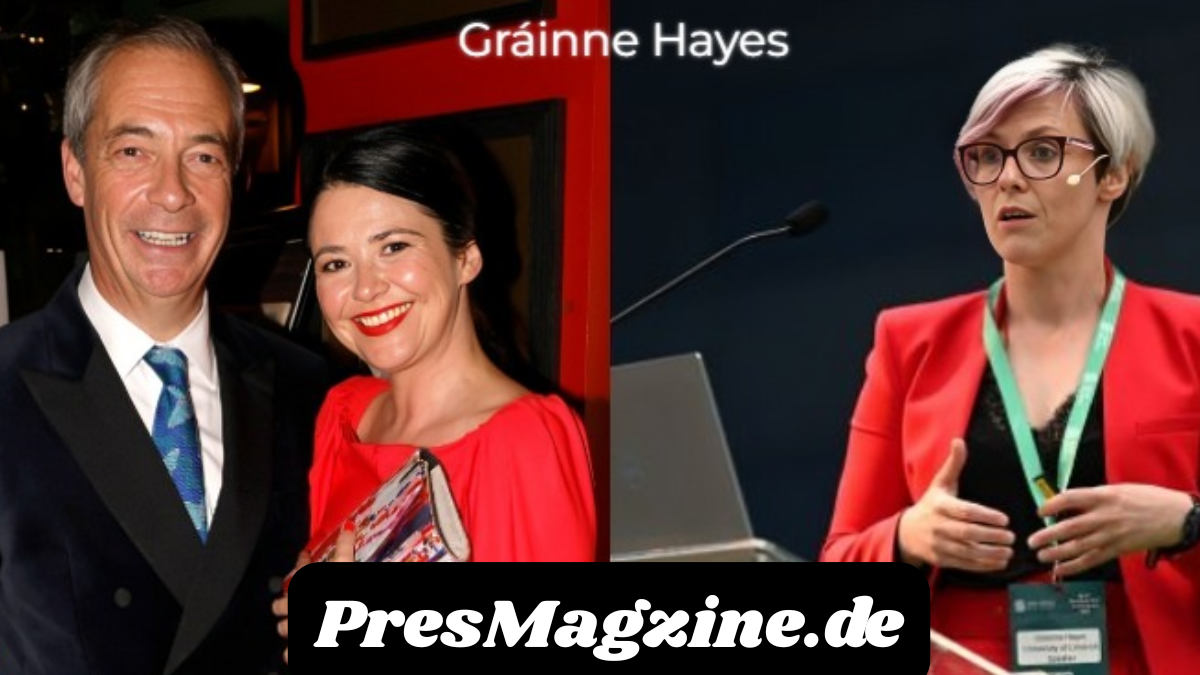Gráinne Hayes is a name that resonates within various spheres of influence, depending on the context in which it arises. While she may not be a universally recognized figure across all media channels, in many intellectual, cultural, or academic spaces, she carries notable weight. Her identity often reflects an intricate blend of professionalism, activism, and creativity, bringing together the realms of education, literature, or public advocacy. The name “Gráinne” itself, rooted in Irish heritage, evokes images of strength and history, often linked to the legendary Irish figure Gráinne, who defied conventions. Coupled with the surname Hayes, Gráinne Hayes becomes a symbol of cultural pride and individual distinction. This article aims to explore the depth of her identity, her contributions, and the significance she holds within the communities she influences.
The Cultural Roots of the Name Gráinne Hayes
The name Gráinne has a rich Celtic heritage, frequently associated with Irish mythology and folklore. Traditionally, Gráinne was the daughter of Cormac mac Airt, a High King of Ireland, and her story is one of rebellion and passionate love. In this context, the name itself denotes someone who is brave, fierce, and unapologetically independent. When associated with someone like Gráinne Hayes, it imbues her with an almost mythological presence, someone who might be grounded in historical and cultural resilience.
While Hayes is a more anglicized surname, it is not without its own meaning. It originates from an Old English word meaning “hedged area” or “enclosure,” often tied to landowners or those with a deep connection to nature and place. Together, Gráinne Hayes becomes a symbolic representation of strength tethered to heritage and landscape.
Academic and Intellectual Contributions
If Gráinne Hayes is known within academic circles, it is often for her thoughtful analysis, research acumen, or commitment to understanding the world through a critical lens. Whether she has authored academic papers, conducted social research, or spoken at universities, her work tends to focus on topics that impact society on a structural level. Her voice resonates through the careful crafting of arguments, data-backed insights, and an unwavering commitment to intellectual integrity.
In education, she might have played a vital role in promoting inclusive learning environments, focusing on empowering marginalized voices, and building curriculum that respects diversity and critical thinking. Her teaching methods, if applicable, likely emphasize participatory learning, challenging students to question their own biases and engage meaningfully with course material.
Advocacy and Public Engagement
Gráinne Hayes may also be deeply involved in social activism, promoting justice, equity, and sustainability. Whether through grassroots organizations or national campaigns, her role as an advocate would be built on empathy, research, and active community engagement. Her work might revolve around gender rights, mental health awareness, or environmental justice, areas that call for both compassion and policy-driven thinking.
Public engagement could come in the form of speaking at conferences, participating in forums, or writing op-eds that challenge societal norms. Her rhetorical style would likely combine logic and emotion, appealing to both the heart and the mind of her audience. Through her public presence, she might encourage dialogue, civic action, and structural change.
Creative Work and Artistic Expression
If Gráinne Hayes is active in creative domains, such as writing, art, or performance, her work would undoubtedly reflect a blend of personal narrative and broader social themes. She might be a poet whose verses speak to the lived experience of Irish women, or a novelist whose characters navigate the complexities of modern identity. Perhaps she is a visual artist using mixed media to express grief, love, resistance, or cultural pride.
Creative work by Gráinne Hayes could be found in literary journals, art galleries, or digital platforms. What makes her artistic output unique is not just aesthetic brilliance but a strong thematic core that addresses issues of identity, heritage, and belonging. Her creative process might be deeply introspective, drawing from personal stories while always keeping an eye on collective truth.
Influence in Media and Public Discourse
In the media landscape, Gráinne Hayes might serve as a commentator or analyst, lending her voice to podcasts, radio segments, or television interviews. Her insights could be sought after for their clarity, nuance, and ethical grounding. Rather than chasing fame, her presence in the media would be about spreading awareness, educating audiences, and promoting critical discourse.
Her media influence could also extend to social platforms, where she might use Twitter or Instagram to share thoughts, respond to events, or highlight injustices. In these spaces, her words would be deliberate, designed to provoke thought rather than provoke outrage. She might engage with followers, answer questions, or share resources that encourage deeper exploration of important topics.
Personal Ethos and Leadership Style
A defining trait of someone like Gráinne Hayes would be her leadership style—likely one rooted in collaboration, transparency, and empathy. Whether leading a project, a class, or a community initiative, she might prioritize listening, mutual respect, and collective vision. Her leadership does not conform to hierarchical norms but rather seeks to empower others and amplify unheard voices.
Her personal ethos may emphasize continuous learning, ethical responsibility, and a commitment to making the world a more just place. These values are reflected not only in what she says but in how she lives, works, and interacts with others. This authenticity is what makes her respected among peers, students, and collaborators alike.
Intersections of Identity and Work
Much of Gráinne Hayes’ influence might come from how she navigates the intersections of her identity—perhaps as a woman, a mother, an academic, a creative, and an Irish citizen. These identities are not just categories but lived experiences that shape her worldview. Her work might reflect an acute awareness of these intersections, challenging essentialist narratives and embracing complexity.
For instance, her experience as an Irish woman in a globalized world may inform her critique of colonial structures, her exploration of diaspora, or her support for indigenous rights. She might also write or speak about the challenges of balancing professional work with caregiving, using her platform to advocate for policies that support working parents and caregivers.
Recognition and Legacy
Although public awards or honors may not be the primary driver for someone like Gráinne Hayes, recognition for her work likely comes in the form of respect from her peers, heartfelt testimonials from students or mentees, and a legacy of meaningful change. If institutions or organizations have acknowledged her contributions, it would be for efforts that created real impact, not just performative excellence.
Her legacy would not be measured in accolades but in the people she has inspired, the conversations she has started, and the systems she has helped improve. Whether through mentoring young leaders, publishing impactful work, or building inclusive spaces, her influence would continue to ripple long after her direct involvement ends.
Philosophical Underpinnings
At the core of her worldview might be a blend of humanism, critical theory, and intersectional feminism. These frameworks guide her understanding of power, knowledge, and identity. She likely sees education as a tool for liberation, art as a form of resistance, and dialogue as a path to healing. Her philosophy might borrow from thinkers like bell hooks, Paulo Freire, or Audre Lorde, using their ideas to ground her own practices.
This intellectual grounding does not make her inaccessible; instead, it equips her to translate complex ideas into relatable language. Whether in the classroom, the community center, or the media, she seeks to make knowledge a shared resource rather than a guarded privilege.
Future Outlook and Continuing Work
Looking to the future, Gráinne Hayes is likely to remain a vibrant presence in whatever domain she operates. Her work would evolve to meet the demands of a changing world, whether that means incorporating new technology into her teaching, responding to emerging social issues, or collaborating with younger activists. She would embrace adaptability not as a compromise but as a strength, constantly seeking new ways to remain effective and relevant.
Her future projects might involve writing a memoir, launching a non-profit initiative, curating a public art installation, or mentoring the next generation of changemakers. Whatever form they take, these projects would continue to reflect her core values of integrity Gráinne Hayes empathy.
Conclusion
Gráinne Hayes is more than a name—she is a dynamic presence in the spaces she occupies. Whether in the realms of education, advocacy, creativity, or public discourse, she represents a model of thoughtful engagement and purposeful action. Her story, real or symbolic, is one of resilience, compassion, and unwavering commitment to justice. By examining the many dimensions of her identity and contributions, we gain not only a portrait of one individual but also a mirror to our own aspirations for a better world.





